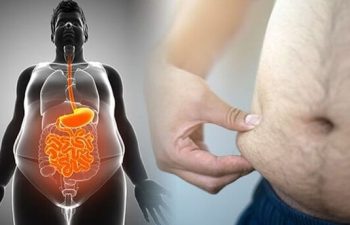
Visceral fat is the fat that is store inside your abdominal cavity and surrounds your organs. It is a health problem that is linked to an increased risk of chronic diseases.
However, fat cells are responsible for not just simply storing excess energy. They also produce hormones and certain inflammatory substances. Visceral fat may lead to long-lasting inflammation, which in turn may heighten the risk of chronic disease.
Here are some ways Weight Loss Surgery LA suggests, in which one can get rid of visceral fat.
Low-Carb Diet
Low-carb diets are effective in reducing visceral fat. According to studies, a ketogenic diet may help in reducing visceral fat as well.
Aerobic Exercises
Regular aerobic exercise is very helpful in shedding visceral fat. Combining it with a healthy diet will accelerate the process.
More Soluble Fibre In Your Diet
Eating more soluble fibre can help reduce visceral fat, because it helps to suppress your appetite and keeps your gut bacteria healthy. So you may try including more soluble fibre-rich foods in your diet or even taking a soluble fibre supplement.
More Protein
Protein is the most important nutrient for fat loss. Eating more protein helps you lose weight and visceral fat. Therefore, you may need to add more protein-rich food in your diet.
Limited Added Sugar Intake
Added sugar is not a very healthy choice and may lead to a lot of health risks on excessive intake. It is largely responsible for increase in visceral fat. Add more whole foods to your meals to reduce the intake of added sugar.
Limited Alcohol Intake
Drinking a small amount of alcohol, especially red wine, can have a lot of health benefits due to the presence of antioxidants. However, consumption of too much alcohol may harm both one’s health and waistline due to the storage of excess visceral fat.
Avoid Trans Fat
Trans fats are harmful for your health. They are an artificial fat created by pumping hydrogen into vegetable oils. Limit intake of food items containing trans fats like baked stuff and potato chips. They are responsible for adding to visceral fat in your body and affecting your waistline.
Plenty Of Sleep
A good night’s sleep can be highly beneficial for your health. Studies show that that a lack of sleep may increase visceral fat gain. Aim to sleep for at least 7 hours daily following a schedule.
Reduce Stress Levels
Stress and anxiety are some of the most common problems that affect many people. They can stimulate the body’s adrenal glands to produce more cortisol, which is a stress hormone. Research shows that excess cortisol can highly increase visceral fat storage. Furthermore, continuous ongoing stress can lead to overeating, which in turn may make this problem worse.
Chronic stress is linked to visceral fat gain in a lot of studies. In order to relieve stress, you may try exercising more, practise yoga, or meditation, or any activity that works as a stressbuster.
Probiotics
Probiotics are active bacteria that can be good for your gut and digestive health. They are available in supplements and foods like yogurt, kefir, sauerkraut, natto and probiotic drinks sold in the market.
Certain probiotics can even help you lose weight and visceral fat. They may reduce dietary fat absorption in your gut, increasing the amount that your body excretes.
Probiotics, especially Lactobacillus gasseri, may help you lose visceral fat very effectively. However, there is ongoing research going on in this area.
Intermittent Fasting
Intermittent fasting has lately been quite a popular way to lose weight. It is mainly a pattern of eating meals with a cycle between eating and fasting. Unlike dieting, there is no restriction on any food in intermittent fasting. Only decides when you should eat them.
Conclusion
Visceral fat has proved to be incredibly harmful for the body and increases your risk of chronic diseases like heart disease, type 2 diabetes and certain cancers.
However, there are certain strategies one can follow in order to reduce visceral fat, including consuming fewer carbs, eating less sugar, exercising more and having more proteins. If you stick to any or all of these strategies, you will eventually lose visceral fat in your body.
Posted on behalf of Dr. David G. Davtyan MD, FACS, FICS





